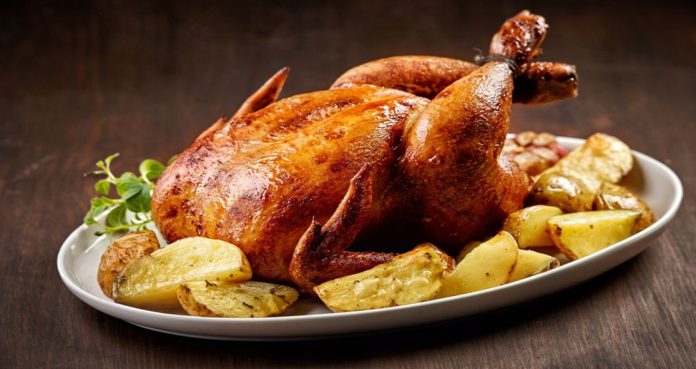According to a new UK study, there is a potential link between consuming chicken and cancer risk. The study was published in a peer-reviewed public health journal called the Journal of Epidemiology and Community Health.
Researchers from Oxford University were able to find that eating chicken can increase the risk of non-Hodgkin’s lymphoma, which is one of the types of blood cancer. The researchers also found that eating white meat has been linked to an increased risk of prostate cancer.
Brits are believed to consume approximately 1.3 billion chickens every year. In fact, poultry is widely considered one of the healthy alternatives to red meat.
The researchers examined more than 475,000 people between the ages 45 and 60 from 2006 to 2014. They analyzed their daily diet and the medical conditions they developed over the course of the study and found that more than 22,000 developed cancer.
The study said, “Poultry intake was positively associated with risk for malignant melanoma, prostate cancer and non-Hodgkin’s lymphoma. The positive associations of poultry intake with prostate cancer and non-Hodgkin’s lymphoma require further investigation.”
Although the study was able to find a possible link between consuming chicken and certain cancers, it did not find the exact cause, suggesting that there could be a potential carcinogen in the white meat.
Earlier this year, a study conducted in the United States found that women who preferred eating poultry instead of pork, lamb or beef were less likely to develop breast cancer.
The National Health Service (NHS) says, “There is probably a link between eating a lot of red and processed meat and bowel (colorectal) cancer,” when it comes to red meat. According to one large study conducted in the UK, those who eat red meat regularly are at greater risk of developing colon cancer than those who eat occasionally.





















